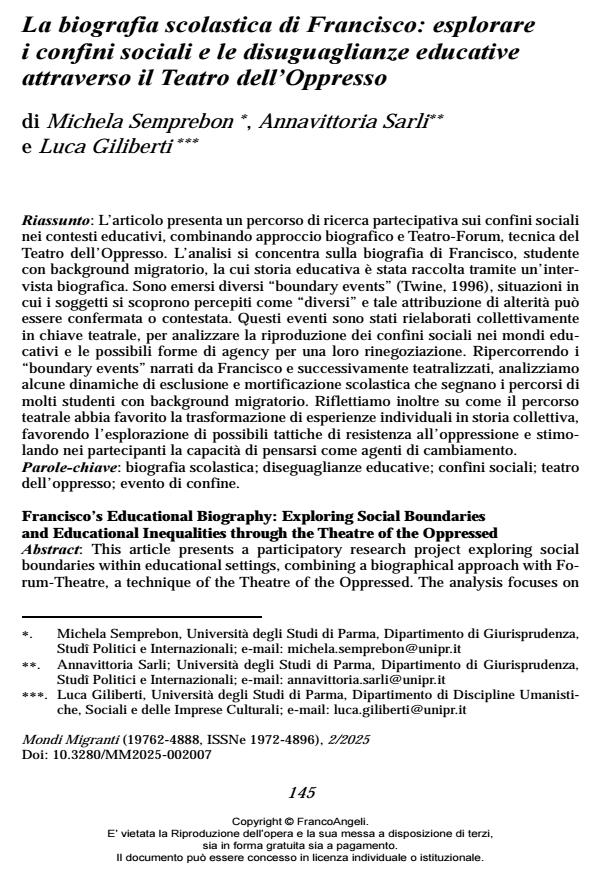Francisco’s Educational Biography: Exploring Social Boundaries and Educational Inequalities through the Theatre of the Oppressed
Journal title MONDI MIGRANTI
Author/s Michela Semprebon, Annavittoria Sarli, Luca Giliberti
Publishing Year 2025 Issue 2025/2
Language Italian Pages 23 P. 145-167 File size 223 KB
DOI 10.3280/MM2025-002007
DOI is like a bar code for intellectual property: to have more infomation
click here
Below, you can see the article first page
If you want to buy this article in PDF format, you can do it, following the instructions to buy download credits

FrancoAngeli is member of Publishers International Linking Association, Inc (PILA), a not-for-profit association which run the CrossRef service enabling links to and from online scholarly content.
This article presents a participatory research project exploring social boundaries within educational settings, combining a biographical approach with Forum-Theatre, a technique of the Theatre of the Oppressed. The analysis focuses on the biography of Francisco, a student with a migratory background, whose educational story was collected through a biographical interview. Several “boundary events” (Twine, 1996) emerged – situations in which individuals realise they are perceived as “different”, and in which such attributions of otherness may be either confirmed or challenged. These events were collectively re-elaborated through a theatrical approach, in order to analyse how social boundaries are reproduced in educational contexts and to explore potential forms of agency to renegotiate them. Revisiting the “boundary events” narrated by Francisco and later reworked theatrically, we examine dynamics of exclusion and educational humiliation that characterise the experiences of many students with migratory background. We also reflect on how the theatrical process enabled the transformation of individual experiences into collective history, encouraging the exploration of possible tactics of resistance to oppression and fostering participants’ ability to view themselves as agents of change.
Keywords: educational biography; social boundaries; educational inequalities; theatre of the oppressed; boundary event.
Michela Semprebon, Annavittoria Sarli, Luca Giliberti, La biografia scolastica di Francisco: esplorare i confini sociali e le disuguaglianze educative attraverso il Teatro dell’Oppresso in "MONDI MIGRANTI" 2/2025, pp 145-167, DOI: 10.3280/MM2025-002007